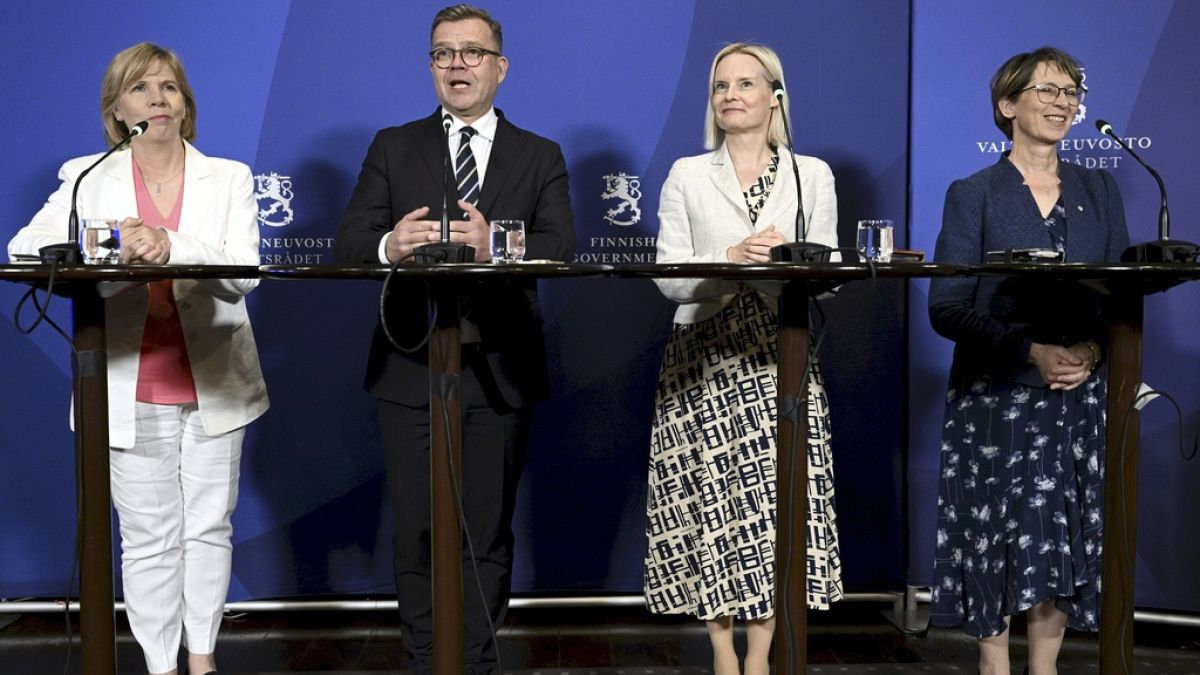The rise of extremist parties is a sign that the old frameworks for political debate are no longer functioning, academic observers say
It's the latest example in Europe of a coalition including the far right: Finland presented its new government on Friday, including conservatives and an anti-immigration party, which came second in the parliamentary elections.
Not only the far right, but also radical left-wing parties are increasingly making their presence felt in the political debate, to the detriment of centrist parties.
In a Europe fractured by political cleavages - be it pro or anti-European, pro or anti-immigration, conservative versus progressive - the centre is facing increasing competition.
"Centrism is the search for a consensus," says Sylvie Guillaume from the Institut universitaire de France. "And as soon as there is a cleavage, and cleavages are developing much more through social networks, as soon as there are very strong, very hard cleavages in society, you have a weakening of centrism."
As social networks all but replace intermediary bodies, the Yellow Vests episode in France showed how people are turning from traditional parties to more spontaneous forms of organisation.
"The rise of extremism is not just a political phenomenon," says Guillaume. "It's also a social phenomenon. Before, you had political parties, trade unions, who structured movements with, if you like, a framing function. Now, these so-called classic political parties have collapsed."
But if the traditional parties themselves are in trouble, progressive and consensual ideas are often taken up by populist parties, when seeking power in the case of Marine le Pen's U-turn on Europe, or when in power in the case of Giorgia Meloni's shift over NATO and Russia.
"You can have protest speeches, you can have forms of populism," says Jean-Pierre Darnis, researcher at the Côte d'Azur University and visiting professor at LUISS in Rome. "But once you're in office, if you want to stay there, you start cultivating what used to be called a centrist discourse.
"Centrist parties lose their function because their ideas have been adopted."
It remains to be seen whether the European Parliament, a bastion of centrism, will withstand the onslaught of populist parties in the 2024 parliamentary elections.
